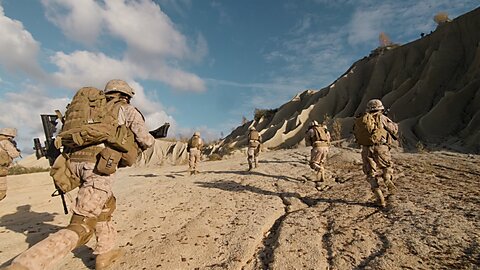Impelled by an overwhelming desire to hunt down those who were responsible for the September 11, 2001, terrorist attacks, the United States launched military invasions of Afghanistan and Iraq, where it toppled regimes that had little or nothing to do with 9/11 and devolved into extended counterinsurgency wars that resulted in the deaths of more than 100 times as many people as perished on 9/11.
There has been a tendency to see these exercises as misguided elements of a coherent plan to establish a “liberal world order” or to apply “liberal hegemony.” However, the wars of the post–9/11 period have been a glaring aberration. During the quarter century before, the US had pursued a foreign policy that was far more casualty‐averse.
In recent years, the country seems to have resumed—and even expanded upon—that tradition, a change that may have relevance to policy toward China and Taiwan.
After its war in Vietnam ended in debacle in 1975, the US fell into something that has been dubbed the “Vietnam syndrome.” There continued to be support for the contest against international communism but not for the tactic of opposing it through armed ground interventions.
The most assertive Cold War actions were a military invasion of the small Caribbean island of Grenada in 1983 and an operation to support the anti‐Soviet rebels in Afghanistan after 1979. Outside the Cold War, the US invaded Panama in 1989 to depose an offending regime, and it led an armed international coalition in 1991 to reverse Iraq’s invasion of Kuwait.
In all these cases, America’s opponents were hardly formidable. For example, the Iraqi army lacked strategy, tactics, defenses, leadership, and morale, and it mainly fled or surrendered.
Other military ventures Washington pursued after the Vietnam War were even more limited and were mostly carried out not for hegemonic purposes, but for humanitarian ones. For example, in 1992, American soldiers sent to help stabilize Somalia were withdrawn after eighteen of them were killed in a chaotic firefight. And the American military role in a civil war in Bosnia involved little more than supplying aid and advice and, toward the end of the conflict, conducting limited bombing missions.
Overall, this record does not suggest a country that is trying to expand, looking for a fight, crusading for democracy, questing after monsters to destroy, or seeking to act like a “hegemon.”
This comparatively casualty‐averse military approach would likely have continued but for the terrorist attacks of September 11, 2001. In response, President George W. Bush bizarrely proclaimed a need to “rid the world of evil” and launched wars in Afghanistan and Iraq as part of a Global War on Terror (GWOT).
Actually, neither of these wars was likely necessary. The insecure Taliban regime in Afghanistan might well have proved susceptible to international pressure, and Saddam Hussein’s regime in Iraq was unlikely to dominate the Middle East with its ramshackle and unreliable army.
As it became clear just how costly and counterproductive the wars had become, Washington began to shift back to a more cautious military approach, reconfiguring the wars to reduce the US battle death rate. In 2014, it sent troops back to Iraq to fight the Islamic State (ISIS), but local fighters bore the brunt of combat deaths: tens of thousands of people were killed in the five‐year war, but only twenty were American service personnel.
The US now seems to have fully embraced an “Iraq syndrome,” and it has moved back to a considerable degree of casualty aversion. There is still plenty of spending on the military and on its bases around the world, and economic sanctions seem to have retained their appeal despite little evidence of their effectiveness at changing policy. But there have been almost no American combat casualties in recent years, and GWOT now mostly involves policing and the training of locals.
In fact, casualty aversion may be greater than in the post‐Vietnam period. For example, there likely will be little support for extended bombing raids or for regime‐changing military actions. And while support for local Ukrainian resistance to a Russian invasion remains relatively high, there is none for sending US troops.
Although there isn’t much call for major military operations to counter China, a test might come if China attempts to take over Taiwan by military force. If local forces resist effectively, as happened in Ukraine, it seems rather likely that the US will respond in much the same manner as in Ukraine. If Taiwan’s forces fold, however, experience suggests that US troops will not be sent to rescue them.
John Mueller is a Senior Fellow at the Cato Institute. His most recent book is The Stupidity of War.

